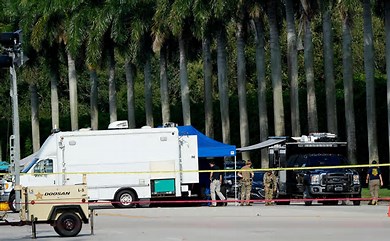Ryan Routh, 58, recently charged in Florida for attempting to assassinate former President Donald Trump, has had a long, troubled history with law enforcement, involving over 100 encounters since the 1980s. Experts suggest that his actions may be linked to mental illness.
Expert Analysis on Mental Health Concerns
Former FBI agent Scott Duffey told Fox News that Routh’s consistent run-ins with the law suggest a desire for constant contact with law enforcement. Duffey emphasized a possible mental health component driving his erratic behavior.
Decades of Escalating Encounters
From minor offenses like driving without a license to more dangerous incidents, such as barricading himself with a rifle in 2002, Routh has consistently escalated his behavior. His social media posts further reveal his growing frustration, particularly towards Trump.
Anti-Trump Sentiments Lead to Assassination Attempt
Leading up to the assassination attempt, Routh voiced regret over his previous support for Trump, calling the former president a “buffoon” and openly inviting Iran to target both Trump and himself. His radical social media posts align with the profile of individuals involved in other violent incidents.
Routh’s Connection to Ukraine and Radicalism
Routh has also been a vocal supporter of Ukraine’s military, even volunteering to help their efforts. His intense political and military involvement raised further questions about his mental stability.
Legal and Mental Health Path Forward
As Routh awaits trial, experts hope that post-conviction, law enforcement can better understand his motivations and prevent similar incidents in the future. His attorney has not commented on the case.























